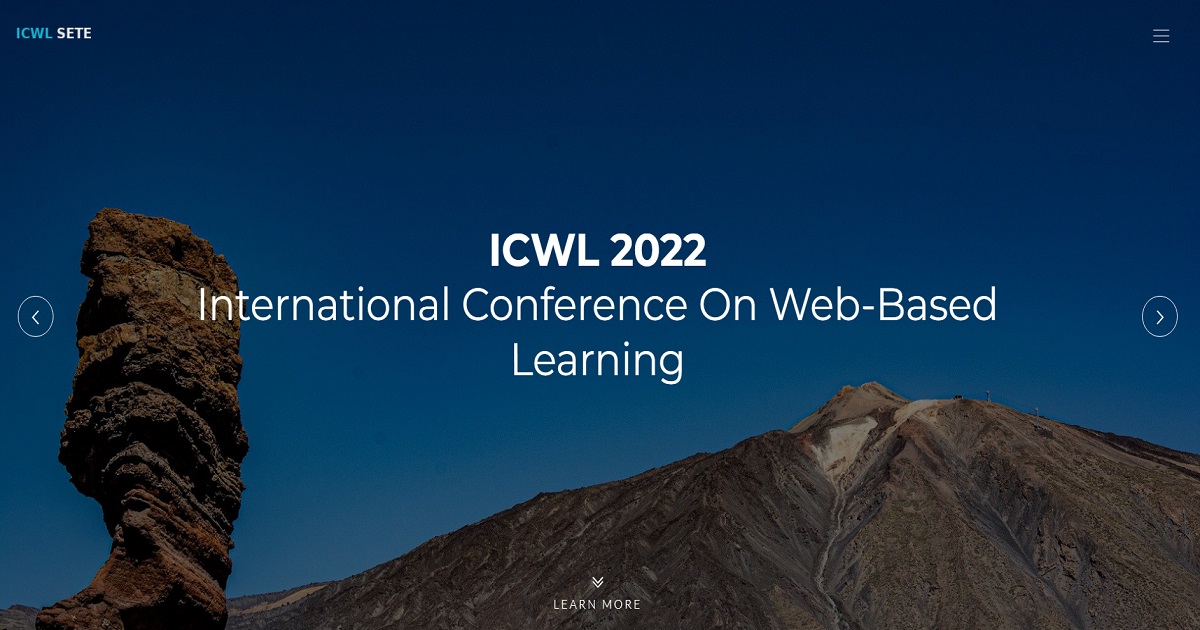Continuing and Emerging Research Trends in Technology-Enhanced Learning (Invited papers from ICWL-2022 and SETE-2022 Joint International Conferences)
A special issue of Electronics (ISSN 2079-9292). This special issue belongs to the section "Artificial Intelligence".
Deadline for manuscript submissions: closed (31 July 2023) | Viewed by 34459
Special Issue Editors
Interests: e-learning; MOOCs; machine learning; learning analytics; deep learning; artificial intelligence
Special Issues, Collections and Topics in MDPI journals
Interests: e-learning; MOOCs; machine learning; learning analytics; deep learning; artificial intelligence
Special Issues, Collections and Topics in MDPI journals
Interests: web analytics; analysis of digital social networks; knowledge management and evolution; multimedia community information systems; cross-media analysis; technology-enhanced learning; digital libraries
Interests: graph algorithms; computational complexity; technology-enhanced learning
Special Issues, Collections and Topics in MDPI journals
Interests: computer graphics; geometric modelling and processing; collaborative virtual environments; visual aesthetics; educational techno
Special Issues, Collections and Topics in MDPI journals
Special Issue Information
Dear Colleagues,
In the last decade, technology-enhanced learning has surged ahead as an intriguing application field for multidisciplinary research, from the more traditional areas of education, higher education, assessment, and e-learning to the relatively newer subjects of learning analytics and technologies supporting education, such as recommender systems, machine learning, deep learning, and artificial intelligence.
The Internet and TEL have led to the exponential growth of distance education’s use and demand, and the 21st century seems to be the century of lifelong learning: people geographically and culturally spread across the globe, including companies, practitioners, students, and communities of practice, are involved in learning programs based on the use of educational material available both on specific e-learning platforms and on the Internet.
This landscape provides scholars, teachers, students, and other stakeholders involved in education with significant and exciting challenges in theory, development of software network-based systems, and practice. Examples of such challenges include the design and development of systems facilitating: 1) the production of learning analytics data and their visualization; 2) support for searching, recommending, integrating, and delivering learning materials on the network; and 3) the adaptation of educational experiences and their delivery to the specific learning needs and personal traits of the end-user (be it the student, the teacher, the community of learners or teachers, or the administrative manager).
All these systems use different strategies and techniques designed and implemented based on educational theories and computer science theoretical practical resources. This Special Issue aims to gather novel research work reporting on the innovation of established technologies and techniques and the development of new approaches that can boost the efficiency, effectivity, applicability, and use of TEL in schools, universities, and industry.
- Assessment in e-learning;
- Learning analytics;
- Machine learning and deep learning for education;
- Cloud-based e-learning;
- Computer-supported collaborative learning;
- Design, modeling, and framework of e-learning systems;
- Digital libraries and web corpora for e-learning;
- E-learning platforms and tools;
- Game-based learning and serious Games;
- Web-based learning;
- Educational data mining;
- Massive open online courses (MOOC);
- Mobile, situated, and blended learning;
- Personal learning environments (PLEs);
- Personalized and adaptive learning;
- Security and privacy of web-based learning;
- Semantic web and ontologies for e-learning;
- Virtual environments and 3D graphics for e-learning;
- Web 2.0 and social learning environments;
- Web-based learning for oriental language learning;
- Education technology (Edtech) and ICT for education;
- ICT for inclusion in quality education.
Dr. Filippo Sciarrone
Dr. Marco Temperini
Prof. Dr. Marc Spaniol
Dr. Luigi Laura
Dr. Frederick W. B. Li
Guest Editors
Manuscript Submission Information
Manuscripts should be submitted online at www.mdpi.com by registering and logging in to this website. Once you are registered, click here to go to the submission form. Manuscripts can be submitted until the deadline. All submissions that pass pre-check are peer-reviewed. Accepted papers will be published continuously in the journal (as soon as accepted) and will be listed together on the special issue website. Research articles, review articles as well as short communications are invited. For planned papers, a title and short abstract (about 250 words) can be sent to the Editorial Office for assessment.
Submitted manuscripts should not have been published previously, nor be under consideration for publication elsewhere (except conference proceedings papers). All manuscripts are thoroughly refereed through a single-blind peer-review process. A guide for authors and other relevant information for submission of manuscripts is available on the Instructions for Authors page. Electronics is an international peer-reviewed open access semimonthly journal published by MDPI.
Please visit the Instructions for Authors page before submitting a manuscript. The Article Processing Charge (APC) for publication in this open access journal is 2400 CHF (Swiss Francs). Submitted papers should be well formatted and use good English. Authors may use MDPI's English editing service prior to publication or during author revisions.
Keywords
- technology-enhanced learning
- web-based learning
- MOOCs
- assessment in e-learning
- deep learning
- machine learning
- educational data mining
Benefits of Publishing in a Special Issue
- Ease of navigation: Grouping papers by topic helps scholars navigate broad scope journals more efficiently.
- Greater discoverability: Special Issues support the reach and impact of scientific research. Articles in Special Issues are more discoverable and cited more frequently.
- Expansion of research network: Special Issues facilitate connections among authors, fostering scientific collaborations.
- External promotion: Articles in Special Issues are often promoted through the journal's social media, increasing their visibility.
- Reprint: MDPI Books provides the opportunity to republish successful Special Issues in book format, both online and in print.
Further information on MDPI's Special Issue policies can be found here.










